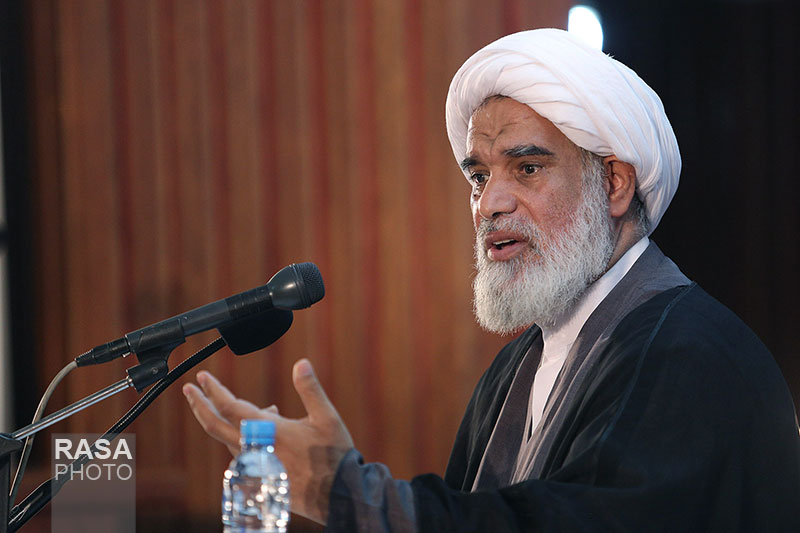
RNA – Speaking at a ethics meeting at Imam al-Husayn Seminary in Ahvaz, Ayatollah Abbas Ka’bi, the representative of the people of Khuzestan province in the Assembly of Experts, referred to the “evil and absurd” statements made by the president of the United States, Donald Trump, on October 14th in which he delivered a speech outlining the US’ strategy regarding the Islamic Republic of Iran and said, “The name of the Persian Gulf and the defense of this name is based on our doctrine, thought and belief.”
Trump referred to the Persian Gulf the “Arabian Gulf.”
The member of the Society of Seminary Teachers of Qom added, “This isn’t a discussion between Arabs and non-Arabs but rather it’s a discussion of the sovereignty of religion and the sovereignty of the Islamic Republic of Iran. It’s not a question of fanaticism over a name that they say ‘Arabian Gulf’ and we say ‘Persian Gulf’ and discuss the issue of Arab and non-Arab.”
Referring to the purpose of the American presidents to use a false name for the Persian Gulf, Ayatollah Ka’bi pointed out that when former president Barack Obama, Trump and other like-minded people and organizations use this false name, they are attempting to take the Persian Gulf away from the sovereignty of Islam and place it under American sovereignty.
“Trump is seeking an American and Israeli gulf,” he stressed.
The senior Iranian cleric referred to Trump’s “nonsensical” remarks and said, “[Iranian President Hasan] Rouhani’s response last night was admirable. He revealed the crimes of the US, emphasized on the US’ animosity towards the Iranian people, defended the Islamic Revolutionary Guard Corps (IRGC) and the country’s missile power and exposed the hostile policies of the Americans and we are appreciative and grateful for this.”
Ayatollah Ka’bi said that in the last part of President Rouhani’s speech, he said that the violations of the Joint Comprehensive Plan of Action (JCPOA) by the US will not damage the agreement and said, “This statement isn’t the end but rather now, after the violation of the agreement by the US, the Islamic Republic must continue its nuclear policies that it had before the signing of the JCPOA [on July 14, 2015] with decisiveness.”
He said, “Of course, military analysts say that Trump’s remarks may be a prelude to a limited military threat and if this happens, the battlefield of this obtuse and limited military threat will be at sea and of course, the Navy of Islamic Republic of Iran knows with certainty that they will give a very strong and accurate response to obtuseness of the US at sea.”
In his speech on Friday, Trump refused to certify the JCPOA, which is an international nuclear agreement between Iran and the five permanent members of the United Nations Security Council and Germany, and warned he might ultimately terminate it, in defiance of other world powers and undermining a landmark victory of multilateral diplomacy.
Trump also said he would choose not to certify that Tehran is complying with the nuclear deal.
112/930/502